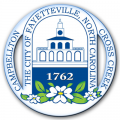The nursing profession in the Greensboro / High Point area can be broadly divided into three distinct roles. Each nursing role carries a unique mix of work duties, educational requirements, and compensation.
Certified nursing assistant
Latest articles
Many of Fayetteville’s major healthcare providers, such as PruittHealth and Amedisys, are looking to employ new nurses. The area has four primary nursing roles, each of which requires a particular set of skills and qualifications. Fayetteville’s prospective nurses should learn more about the area’s work and education opportunities.
Advanced practice registered nurse (APRN)
The Durham / Chapel Hill area of North Carolina is home to over 13,000 nursing professionals. Aspiring nurses can pursue several distinct nursing roles, each of which carries unique qualification requirements.
Certified nursing assistant (CNA)
A number of community colleges offer certificate programs which allow students to qualify as certified nursing assistants. These courses are cost-effective and time-efficient, typically requiring only a few months to complete. Hence, many students begin their nursing careers by qualifying as CNAs.
North Carolina’s nurses typically fall into one of three major nursing roles. Each role requires a different education pathway to achieve qualification, and each role carries unique duties. In addition, compensation varies greatly by nursing role.
Certified nursing assistant
A master of science in nursing (MSN) program enables registered nurses who already hold a bachelor’s degree to pursue graduate study. An MSN program qualifies its graduates to work as advanced practice registered nurse (APRNs) in specialized roles like nurse practitioner, nurse midwife, and nurse anesthetist.
APRN specializations
Many aspiring nurses keep a close eye on the cost of attending nursing school. The all-in cost of enrollment is comprised of several distinct components, which we profile below.
Tuition
Public colleges and universities receive subsidies from the state government. Hence, they are able to offer state residents significantly lower tuition fees than private schools. Public institutions are a good option for students concerned about the financial costs of nursing education.
Public nursing schools in North Carolina
Many of North Carolina’s public colleges and universities are very large in size, with student enrollments in the tens of thousands. They are thus well-known by the state’s nursing employers, who hold them in high esteem.
Green Bay offers several accredited programs for students interested in pursuing a career in the city’s rapidly growing nursing sector. Aspiring nurses should begin by understanding the different nursing roles, the education pathway required for each, and the career trajectory that nursing graduates enjoy.
Nursing roles
The country’s rapidly growing healthcare sector is expected to create many nursing jobs over the next decade. Wisconsin already employs well over 100,000 nurses statewide, including 37,000 certified nursing assistants (CNAs), 10,000 licensed practical nurses (LPNs), and 56,000 registered nurses (RNs). These nurses work in a diverse range of healthcare settings, including local hospitals like Mayo Clinic and Froedtert Hospital. Wisconsin’s aspiring nurses must budget their educational expenses carefully and weigh the various options in order to maximize the return on this investment.
Public colleges and universities are state-supported institutions of higher learning. State (or county) residents enjoy lower tuition fees at public schools, which can drive considerable cost savings for students. Since public schools reserve a significant number of seats for local residents, the admissions process is often more accessible. Public colleges and universities also have diverse student bodies and large class sizes, providing a range of opportunities for students to pursue their interests.
Wisconsin public nursing programs










